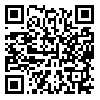Volume 35, Issue 139 (January 2023)
IJN 2023, 35(139): 504-519 |
Back to browse issues page
Download citation:
BibTeX | RIS | EndNote | Medlars | ProCite | Reference Manager | RefWorks
Send citation to:



BibTeX | RIS | EndNote | Medlars | ProCite | Reference Manager | RefWorks
Send citation to:
Ehsani M, Seyedoshohadaee M, Haghani S, Shojaeimotlagh S. Knowledge, Attitude and Practice Regarding COVID-19 in Patients With Diabetes. IJN 2023; 35 (139) :504-519
URL: http://ijn.iums.ac.ir/article-1-3642-en.html
URL: http://ijn.iums.ac.ir/article-1-3642-en.html
1- Nursing and Midwifery Care Research Center, Faculty of Nursing and Midwifery, Iran University of Medical Sciences, Tehran, Iran.
2- Nursing and Midwifery Care Research Center, Faculty of Nursing and Midwifery, Iran University of Medical Sciences, Tehran, Iran. ,sashomo@gmail.com
2- Nursing and Midwifery Care Research Center, Faculty of Nursing and Midwifery, Iran University of Medical Sciences, Tehran, Iran. ,
Abstract: (3036 Views)
Background & Aims Although COVID-19 can affect people in different age groups, the conditions and severity of symptoms are worse in people with diabetes. This aims to determine the knowledge, attitude and practice (KAP) regarding COVID-19 in people with diabetes in Tehran, Iran.
Materials & Methods This is a descriptive cross-sectional study on 384 patients with type 1 and type 2 diabetes referred to Firozgar and Hazrat Rasool-e Akram hospitals affiliated to Iran University of Medical Sciences from December 2021 to June 2022. They were selected using a continuous sampling method. The instruments were a demographic form and the KAP questionnaire designed by Honarvar et al. (2020). Data analysis was done in SPSS v.16 using descriptive and inferential statistics.
Results The mean age of the participants was 40.11±15.20 years. It was reported that 94.8% had moderate and sufficient knowledge of COVID-19. The mean attitude score was 30.90±4.89 which is a moderate-to-high level. Only 1.3% had poor practice regarding COVID-19. A statistically significant relationship was observed between the average knowledge of patients and their marital status (P=0.006), employment status, and duration of disease (P<0.001). In addition, there was a statistically significant relationship between the attitude of patients and their educational level (P=0.015) and duration of disease (P=0.027). Their practice level had a significant relationship with gender (P=0.010), marital status (P=0.001), and type of diabetes (P<0.001).
Conclusion The KAP of people with diabetes in Tehran regarding COVID-19 is at a favorable level. This indicates the success of the measures taken to educate this category of patients by health centers and media, and reveals the necessity of increasing the health literacy of people in pandemics.
Materials & Methods This is a descriptive cross-sectional study on 384 patients with type 1 and type 2 diabetes referred to Firozgar and Hazrat Rasool-e Akram hospitals affiliated to Iran University of Medical Sciences from December 2021 to June 2022. They were selected using a continuous sampling method. The instruments were a demographic form and the KAP questionnaire designed by Honarvar et al. (2020). Data analysis was done in SPSS v.16 using descriptive and inferential statistics.
Results The mean age of the participants was 40.11±15.20 years. It was reported that 94.8% had moderate and sufficient knowledge of COVID-19. The mean attitude score was 30.90±4.89 which is a moderate-to-high level. Only 1.3% had poor practice regarding COVID-19. A statistically significant relationship was observed between the average knowledge of patients and their marital status (P=0.006), employment status, and duration of disease (P<0.001). In addition, there was a statistically significant relationship between the attitude of patients and their educational level (P=0.015) and duration of disease (P=0.027). Their practice level had a significant relationship with gender (P=0.010), marital status (P=0.001), and type of diabetes (P<0.001).
Conclusion The KAP of people with diabetes in Tehran regarding COVID-19 is at a favorable level. This indicates the success of the measures taken to educate this category of patients by health centers and media, and reveals the necessity of increasing the health literacy of people in pandemics.
Type of Study: Research |
Subject:
nursing
Received: 2022/12/10 | Accepted: 2022/12/22 | Published: 2022/12/22
Received: 2022/12/10 | Accepted: 2022/12/22 | Published: 2022/12/22
Send email to the article author
| Rights and permissions | |
 |
This work is licensed under a Creative Commons Attribution-NonCommercial 4.0 International License. |







